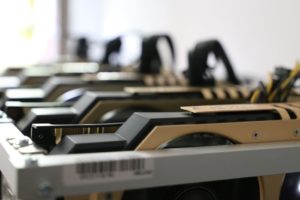
What is a Decentralized Exchange (DEX)?
Everything you need to know about DEX
From the early days of Bitcoin, exchanges have played a vital role in matching cryptocurrency buyers with sellers. Without these forums to attract a global user base, our liquidity will be greatly reduced and we will not be able to reach a consensus on the correct price of assets. Traditionally, centralized players have dominated this field. However, with the rapid development of available technologies, more and more decentralized trading tools have emerged. In this article, we will delve into decentralized exchanges (DEX), which are trading venues that do not require intermediaries.
Definition of decentralized exchanges (DEX)
In theory, every peer-to-peer swap could be defined as a decentralized trade. But in this article we will be mainly focussing on platforms that mirror the functions of centralized exchanges. One of its main differences is the fact that their backend exists primarily on a blockchain. No one is able to take control or custody of your funds, and you do not have to worry about trusting exchanges to an extent you do not feel comfortable with. A decentralized exchange means your money will always be regulated by yourself.

How does a centralized exchange work?
With most of the typical centralized exchanges, you deposit your money through FIAT (credit/debit card, bank transfers) or cryptocurrency. But when you deposit cryptocurrency you give up control of it. You will still be able to use your crypto through trading or by being able to withdraw it, however if you look at it from a technical standpoint; you will be unable to spend it on the blockchain.
You do not own any private keys attached to the funds. This means that when you want to withdraw your cryptocurrency through a centralized exchange you first ask the exchange to sign a transaction on your behalf. When you’re trading, all of the transactions done do not occur on-chain, instead the exchange assigns balances to users in their own database.
The over-all workflow on centralized exchanges is very fast & smooth as you have a lot of tools that make trading done easily for everyone, you can buy and sell your cryptocurrency with just a few clicks.Whereas speaking from a decentralized blockchain standpoint, trading would be more complicated to do so because the blockchain’s low speed is too big of an obstacle.
However, trading on a centralized exchange comes with a cost: independency, as you will have to trust your exchange with your money. You expose yourself to counterparty risk.The worst case probabilities would be their team running off with all of your hard earned cryptocurrency, or perhaps a hacker who shuts down the exchange security and hacks all the funds?
Many users see this as an acceptable risk. They simply stick to well-known exchanges with secure track records and strong precautions that mitigate security and data breaches.
How does a decentralized (DEX) exchange work?
DEX’s are equal to their centralized counterparts in some ways but strongly differ in other aspects. First of all note that there are a couple of different types of DEX available to users. The most common DEX theme among those is that orders are executed on-chain (making use of smart-contracts) and that users remain in full control over their funds at any point.
On-chain order books
In a DEX that uses on-chain order books, there are network nodes which are assigned to maintain the record of all orders. It also requires the assistance of miners to confirm each transaction. Some mention-worthy platforms that use on-chain order books are Bitshares and StellarTerm
Off-chain order books
As opposed to on-chain order books, records of transactions in off-chain order books are hosted in a centralized entity. They utilize relayers to help manage these order books. Due to the fact that the off-chain order books are hosted in a centralized entity off-chain order books are quasi-decentralized, unlike other types of DEX. Binance DEX, 0x and EtherDelta are well-known DEX’s using off-chain order books.
Automated Market Makers (AMM)
Automated market makers exploded in popularity in 2020, driving much of the DeFi boom, and are used by popular DEX platforms like Uniswap, Sushiswap Kyber Network. AMMs have no need for order books. Instead, they utilize smart contracts to form liquidity pools that automatically execute trades based on certain parameters.
Security
DEX are less receptive to this type of risk. Users have control over their own account security without the need of having to use their private keys or recovery seeds, trading can be done freely from either active or inactive wallets. In addition to this, it would not be lucrative for hackers to steal funds from individual users because this will be way too expensive and the reward is unknown, unlike an exchange wallet which will always be large.

Privacy
Every centralized exchange requires its users to comply with Know Your Customer (KYC) when signing up. This instantly forces cryptocurrency holders to give up their personal data to the exchange operator.
Most of the DEX’s do not implement KYC. This is because there is no authority on the exchange which offers privacy when trading unlike a centralized exchange. Rumors have been spreading since late 2020 that in the U.S regulators and the Financial Action Task Force (FATF) are looking for a way to implement KYC on crypto wallets in 2021.
While DEX have made lots of improvements there are also some downsides to mention before choosing your exchange platform.
The transaction speed of orders on DEX can be quite slow. This is because the trade has to be broadcasted to the network and confirmed by miners before the order can be processed. As a result this can lead to price slippage, where your transaction doesn’t execute due to changes in the values of the cryptocurrencies being swapped.
‘’Frontrunning’’ is also a concern with public order books. In this scenario, users will initiate trades with higher gas fees to have them executed earlier than those that are still pending.
Liquidity is achieved by centralized exchanges through enormous capital. DEXs often have a problem on this end, because unlike centralized exchanges, DEX heavily depends on the number of users that are actively trading on the platform. Also they often haven’t got access to any funds which they can move around to facilitate trades.
Fortunately, the decentralized finance (DeFi) space has come up with a solution to this through liquidity pools that DEX’s can tap.
One project that has been solving many limitations within DEXes is 1inch, read more about the 1inch platform here: 1inch token
Recommended


Swing-Trading Explained

Fundamental analysis explained

10 best crypto youtube channels to follow in 2021 !


Trump’s World Liberty Financial: A Bold Move into DeFi

Trump’s Memecoin Shakes Up the Market: The Rise of $TRUMP

MiCA Regulations Reshape the Crypto Landscape: What You Need to Know
More Guides

Proof of stake vs Proof of work: PROs, CONs & Differences
To validate transactions and secure the network, cryptocurrency relies on consensus algorithms. Proof of Work (PoW) and Proof of Stake (PoS) are two of the most

Top 10 most expensive NFT’s crypto art sold (2021)
The NFT art scene market has shown insane growth over the last several months with big names entering the scene such as billionaire entrepreneur Mark Cuban

How to create and sell your own NFT (MetaMask + OpenOcean)
Not sure what NFTs are or want ot learn more? check out this article Digital art is innovating at a rapid pace and NFTs are likely

Proof of work explained – consensus algorithm
Proof of Work (PoW) is a system (consensus algorithm) used in blockchain technology to validate transactions and produce new blocks in a secure and decentralized manner.

 Bitcoin
Bitcoin  Ethereum
Ethereum  Tether
Tether  XRP
XRP  USDC
USDC  Solana
Solana  TRON
TRON  JUSD
JUSD  Lido Staked Ether
Lido Staked Ether  Dogecoin
Dogecoin  Figure Heloc
Figure Heloc  Cardano
Cardano  Wrapped stETH
Wrapped stETH  Bitcoin Cash
Bitcoin Cash  WhiteBIT Coin
WhiteBIT Coin  Wrapped Bitcoin
Wrapped Bitcoin  USDS
USDS  Binance Bridged USDT (BNB Smart Chain)
Binance Bridged USDT (BNB Smart Chain)  Wrapped eETH
Wrapped eETH  Monero
Monero  LEO Token
LEO Token  Chainlink
Chainlink  Hyperliquid
Hyperliquid  Canton
Canton  Coinbase Wrapped BTC
Coinbase Wrapped BTC  Ethena USDe
Ethena USDe  Stellar
Stellar  WETH
WETH  Zcash
Zcash  USD1
USD1  Litecoin
Litecoin  Sui
Sui  Avalanche
Avalanche  USDT0
USDT0  Dai
Dai  sUSDS
sUSDS  Hedera
Hedera  Shiba Inu
Shiba Inu  World Liberty Financial
World Liberty Financial  Ethena Staked USDe
Ethena Staked USDe  PayPal USD
PayPal USD  Toncoin
Toncoin  Cronos
Cronos  Rain
Rain  Polkadot
Polkadot  Uniswap
Uniswap  Tether Gold
Tether Gold  Mantle
Mantle